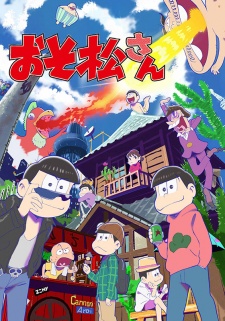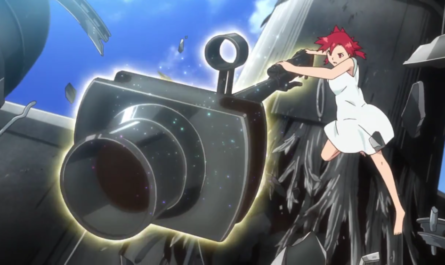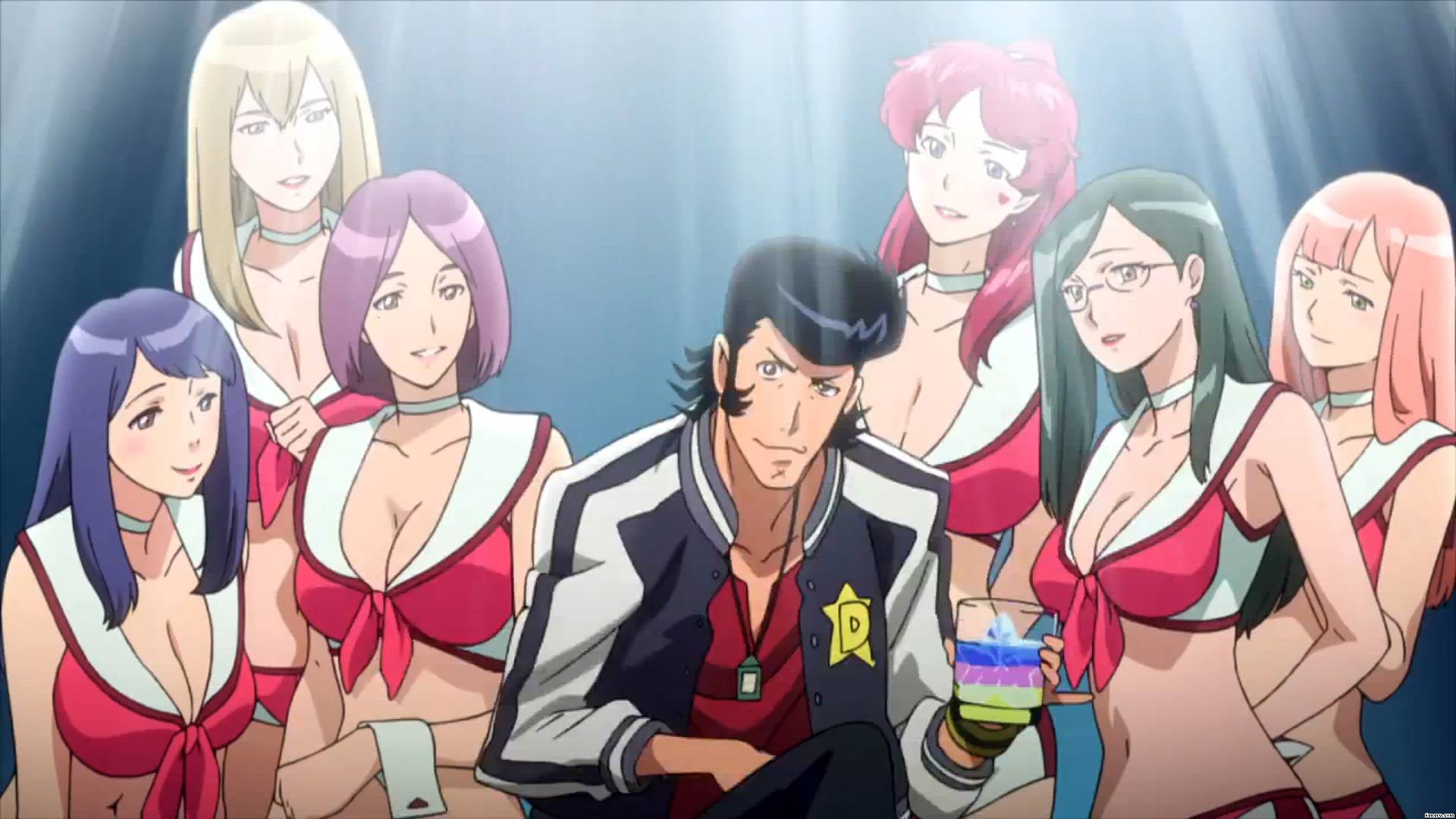Ace Attorney: The Animation
By 1000Throws

When I first heard that Capcom’s Ace Attorney series was getting an anime, I was pretty pumped. I’m a longtime fan of the games, and I’d often wondered if it would ever receive the small screen treatment. It seemed like a good candidate, after all – a game based on solving murder mysteries with a colorful and varied cast of characters. The star of this cast is Phoenix Wright, a defense attorney who does all he can to spare his unlucky clients a guilty verdict. Phoenix’s clients are almost always accused of murder (so that the stakes remain high), and he often has only a day or two to investigate the crime scene and prepare their defense (again, a game-y conceit that allows players to complete cases in a reasonable amount of time). The Japanese title literally translates to “Turnabout Trial,” which actually gives a better idea of how the series works than the English version. During trials in the game, your client’s guilt will seem firmly set in stone until Phoenix stumbles upon an overlooked clue or more closely examines a previously unremarkable piece of evidence. This is where you can “turn it all around,” using the evidence you find to crush the prosecution’s argument and clear your client’s name. Triumphantly solving a case and cornering the true murderer once you’ve fit all of the pieces together can be really enjoyable. That’s true for the games, at least. But how about the show?
Content-wise, the first season of the Ace Attorney anime adheres quite closely to the plot of the first game. There are a few cuts and changes due to time constraints, but the core elements of the first four cases are all there, taking a general investigation-followed-by-trial format. We start with an adaptation of the first game’s “tutorial” case, followed by Phoenix solving the mystery of his murdered mentor. We then progress to a case involving the lead actor of the in-universe show The Steel Samurai, before getting to see Phoenix face off against veteran prosecutor Manfred von Karma in a case that ties many previous plot points together.

The anime follows the format of the game almost exactly style-wise as well. A few key examples: during scene transitions, a green box pops up with the date, time, and location, complete with the clicking of a typewriter; during trials, the word “testimony” flashes on the screen while witnesses are saying their piece, accompanied by character portrait cut-ins of the attorneys; and when Phoenix and rival prosecutor Miles Edgeworth shout “objection!” at each other, the word appears slapped across the screen in bright red letters. You get the idea. These homages to the games, among others, are obviously meant to please hardcore fans, but they started to feel cheap and monotonous to me after a while, mostly because it didn’t seem like the creators were looking to draw in viewers who had never played the games.

It’s not that I think new viewers will feel totally lost watching the show. There are some pacing issues, but the plot isn’t incomprehensible if you’re not familiar with the series. I just think that A-1 Pictures is leaning so hard on the assumption that Ace Attorney’s viewership is mostly hardcore fans that they felt they didn’t have to put too much effort into the anime’s execution. The presentation and direction is overall lackluster – revelations don’t hit with as much “oomph” as they could during investigations and courtroom scenes, and characterization falls flat as well, which comes as quite the disappointment when taking into account the vibrant cast. Even when villains are telegraphed (which is admittedly often – many cases are more of a “howdunnit” than a “whodunnit” by most standards), the mysteries are usually fun to unravel. But the anime showrunners simply fail to translate the fun of investigation and discovery into a different format, and as such, Ace Attorney becomes more of a bland play-by-play than a show proper – faithful, but lacking in vitality.

Compounding these problems are the anime’s production values. The animation is generally pretty poor; except during a few quick action scenes, characters move stiffly and minimally. The art looks awkward and off-model at times, especially when the camera draws back or when multiple characters appear on screen. Not even the opening looks particularly good, and that’s usually where anime studios show off their best animation work. Also, never look too closely at the CG audience members during trials.

It was admittedly a bit hard to try to consider the show from a fresh perspective after having played the games so many times. While it was nice to see some extra scenes – like how a real Steel Samurai episode might look – these interludes didn’t really do much to enhance my experience with the series in the long run, and I don’t see how anyone who’s played the games would need to watch the show. The creators’ challenge was to convey the fun of playing the Ace Attorney games while working within the confines of an inherently non-interactive medium, and for the most part, they failed to do this. Take away interactivity, reproduce the story with minimal effort, and you’re left feeling like you just watched a watered-down version of the game play out. Indeed, Ace Attorney is often so fixated on reminding viewers that it’s based on a video game that it fails to do anything really interesting with the source material. And if a longtime fan could find this adaptation dull – nods to the game and all – I can only imagine how a viewer with no knowledge of the series might feel.
It’s a shame to say this, but I can’t in good conscience recommend this anime across the board, no matter how much I enjoy the Ace Attorney game series. It’s a lazy adaptation that is mediocre at best and boring at worst. The low production values and subpar direction sap charm and tension from what is otherwise good source material, and repetitive graphic interruptions like objection bubbles work in a game, but not so much in a television show. The structure and overall direction of the anime just does not make for compelling watching. Maybe if the studio focuses more on art direction, style, and conveying what makes the games good in the future, the quality of the show will improve – even though the show as-is will still probably appeal to hardcore fans. But if we are getting 12 more episodes of this, I can’t say that what I’ve seen so far makes me excited to continue.
In any case, if the concept of the series interests you, I recommend that you give the games a try instead. There’s not much here to entice new viewers, and unless you’re dying for a recap of the first four cases of the series, there isn’t much to keep old fans hooked either.
Pros
- Retells the first four cases of the first game rather faithfully
- Some extra scenes feel true to the spirit of the games
Cons:
- Stiff animation
- Uninspired art direction
- Fails to translate the game’s sense of fun/style
- References to games may discourage new viewers




